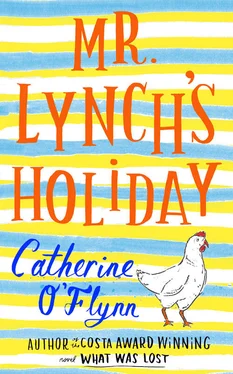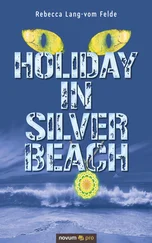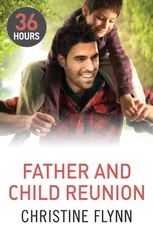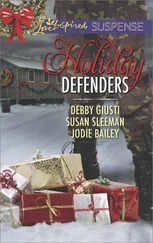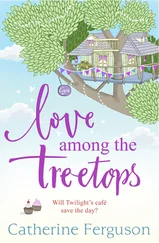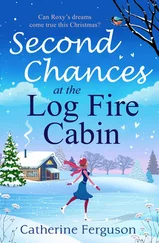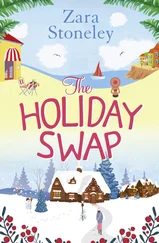Becca was still talking to his father. ‘That’s absolutely right, Mr Lynch — you of all people will understand that, transport-wise, we’re completely stranded.’
Roger came in carrying a tray of ribs: ‘Why stop at transport? We’re stranded whatever way you cut it.’
Roger had earned his money running various tech companies with nebulous names like SysPop and ROKware. Eamonn had no idea what they made or did or sold or traded. They morphed into each other in Roger’s stories — as one called in the receivers a new one was spawned. The fact that he appeared to have left a trail of collapsed companies and unpaid creditors behind him didn’t seem to impinge on Roger’s view of himself as a straight-talking, clear-headed businessman of the world. The reason for his move to Spain was never made explicit. It was possible that he was retiring early, or equally possible that he was simply sitting out a ban before returning to the UK, to launch yet another flawed business enterprise.
Dermot turned to him. ‘Are you trying to sell your property, then?’
‘No point doing that. No point at all. You can send yourself mental asking who’s to blame. Thieving developers? Corrupt town councils? A useless government? A mismanaged global economy? That fucking android Gordon Brown? It’s everybody and nobody. But what you have gathered here before you, Dermot, are the mugs who have to pay the price for all of that. The survivors of a shipwreck. All of us washed up here on the same little island.’
Eamonn wanted to squeeze Laura’s hand, to give her a secret smile. She had always enjoyed Roger’s shipwreck analogies. Soon he’d move on to the shark-infested waters and start lamenting Ian and Becca’s lost life-savings. Eamonn privately doubted that Ian and Becca had saved a penny in their lives. But Laura was no longer there to share the joke with, to make it all easier to bear. She had left him alone with these people. He felt a sudden urge to weep.
Roger’s mention of shipwrecks had prompted Becca to interrupt.
‘Oh God, Eamonn, isn’t it terrible? Did you see it? We were just talking about it before you came.’
‘What?’
‘It’s started again. Bodies down on San Pedro beach.’
‘Eight of them,’ Ian added. ‘Africans, of course.’
‘What? Murdered?’ asked Dermot.
Roger looked grave. ‘Illegal immigrants, Dermot. Trying to reach Europe on nothing much more than a raft. They die of thirst or hunger or hypothermia, or they drown. Happened all the time a few years back, but most of them seem to have got the message now. No bloody jobs here either. Evidently someone forgot to tell this lot.’
Becca turned to Eamonn. ‘It was just vile. They showed the pictures on the telly. Covered-up bodies on the beach. Can you imagine it? There were families and kiddies right there when they got washed up. How awful for them. I said to Ian, “Imagine seeing that.” How would you explain that to your kids?’
At that moment Cheryl emerged from the kitchen carrying a tray of salad.
‘Is the dressing out there, Rebecca?’ She stopped when she saw Eamonn. She looked at him and he gave a small smile. Becca brightened.
‘Thank God for Cheryl! Perfect timing. We were getting ever so depressing. Look, you’ll never guess who this is?’
Cheryl moved her eyes slowly from Eamonn to Dermot. ‘I’d imagine it’s Eamonn’s father. The resemblance is quite strong.’
Eamonn felt the heat in the back of his neck.
‘It’s a pleasure to meet you, Mr Lynch. What brings you here?’
‘Dermot, please.’
‘Dermot. What a lovely name.’
‘I thought I’d come and see what this one was up to.’ He gestured towards Eamonn.
‘And have you found out?’
‘I’m sorry?’
‘Have you found out what he’s been up to? We’d all love to know.’
Eamonn squirmed and Dermot laughed. ‘Ah, I think he’s a good lad, on the whole. Well, we did our best with him anyway.’
‘I’m sure you did.’
Eamonn was relieved when Roger shouted from the terrace: ‘There she goes. Lunatic!’
‘Who’s that, darling?’ said Cheryl, her eyes still on Eamonn.
‘The Swedish one. Thingy.’
‘Inga.’
‘Yeah. Her.’ He rejoined them in the lounge, walking over to Eamonn. ‘Have you seen what she’s gone and done?’
‘Er … no.’
‘Bloody cats’ bowls! Cats’ bowls on her terrace, at the front door, out on the street. What does she think she’s doing?’
Eamonn thought for a moment. ‘Is she feeding the cats?’
‘Course she’s feeding the fucking cats! The question is: is she mental? Haven’t we got enough problems here without luring more feral cats to come and settle? Why don’t we start advertising for squatters too — I mean, there’s enough empty accommodation, why not invite them all in? Gypsies, squatters, burglars, cats, maybe we could let cattle graze on the lawned areas too.’
Eamonn shrugged. ‘I suppose at least the cats prevent an infestation of rats.’
‘And what would be the bloody difference?’
They managed to escape after a couple of sausages. In contrast to his earlier feelings, Eamonn now found the prospect of time alone with his father to be quite bearable. It was Dermot that broke the silence between them.
‘I’d say you’re in a bad way if you can’t see a difference between cats and rats.’
‘Yes.’
‘He seems to get very worked up, that fella.’
‘Yes he does.’
‘Is he a good friend of yours?’
‘Not really. You just end up spending time with them because it’s hard not to. You get sucked in.’ For some reason he found himself wanting to say something positive about Roger. ‘He’s very hospitable.’
‘Well, yes, there’s that.’
‘He just goes on a bit.’
‘Maybe the sun doesn’t suit him.’
‘Maybe.’
They rested on a bench on one of the overgrown grass verges.
‘It never suited your mother. I remember we went to Weston once, before you were born. A beautiful weekend and she got terribly burned and sick. Awful journey home it was.’
‘Dad, he doesn’t have sunstroke.’
Dermot nodded. ‘Well. You know what they say.’
‘What?’
‘Mad dogs and Englishmen.’
‘What does that make you, then?’
Dermot shrugged. ‘A “proper Paddy”, I believe.’
On his first morning in Birmingham he sweated his way along Digbeth in a heavy woollen suit, dragging a suitcase behind him. He asked a man leaning against the wall outside a pub for directions. The man glanced at the scrap of paper and said in a Dublin accent, ‘Aggie Kelly’s?’
‘Do you know her?’ replied Dermot.
‘She’s Michael’s missus. Everyone knows Michael Kelly.’
‘Good lodgings, is it?’
‘It’ll do you.’ He pulled a short pencil from behind his ear and sketched a map on the back of Dermot’s paper. He looked at Dermot as he handed it back. ‘Box?’
Dermot hesitated. ‘I think I’m grand with the suitcase.’
The Dubliner hissed. ‘I’m not here giving you luggage recommendations. I was asking if you box. Do you spar? Are ye a pugilist?’
Dermot shook his head, embarrassed. ‘I never have, no.’
Someone called out ‘Jack’ and the Dubliner walked towards the voice. He glanced back at Dermot. ‘You should go see John Joe Riley.’
When Dermot got to Kelly’s the landlady gave him a mug of tea and a narrow bed in a tiny room shared with a boy from Sligo called Matty Keegan. Matty was a big lad like Dermot and a few months older than him at nineteen. On their first evening together Dermot questioned him about the Kellys, their fellow lodgers, Brummies, and the English in general and received nothing much more than ‘yes’, ‘no’ or a shrug. He was inclined to think Matty simple. It took him a while to appreciate his care with words and his shyness.
Читать дальше
